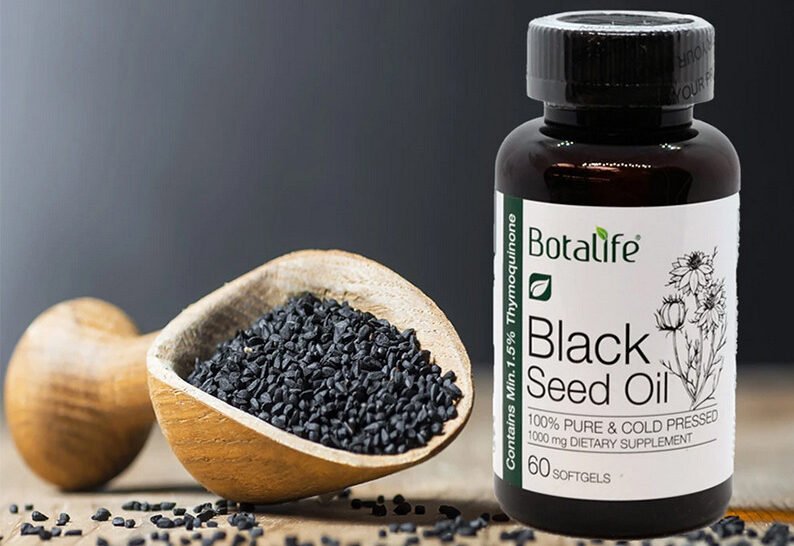Black seed oil, extracted from the seeds of the Nigella sativa plant. It has long been revered for its numerous health benefits. From boosting the immune system to improving skin health, black seed oil has been a staple in traditional medicine across different cultures. In recent years, black seed oil capsules from Africa have gained prominence in the global wellness market. Known for their potential therapeutic properties, these capsules offer a convenient and concentrated form of this ancient remedy. However, as with any supplement, it’s essential to consider the potential side effects. And risks associated with black seed oil capsules from Africa.
The Composition Of Black Seed Oil Capsules From Africa
Black seed oil contains a variety of bioactive compounds, the most notable being thymoquinone, a powerful antioxidant with anti-inflammatory properties. Other key constituents include nigellone, beta-sitosterol, and a range of vitamins and minerals, which contribute to the oil’s health-boosting potential. Black seed oil capsules from Africa are typically made using cold-pressed extraction methods to preserve the oil’s potency. African countries, such as Egypt, Sudan, and Ethiopia, have a long history of cultivating and utilizing Nigella sativa, and the climate in these regions is well-suited for growing high-quality seeds.
Given the robust profile of African black seed oil, it is no surprise that many turn to these capsules as a natural remedy. But like any supplement, understanding potential side effects is critical to ensure safe usage.
Potential Side Effects Of Black Seed Oil Capsules From Africa
While black seed oil is generally considered safe for most people when used in moderate amounts, it can lead to side effects in certain individuals. These side effects might vary depending on factors such as dosage, individual health conditions, or the interaction of the oil with other medications.
1. Allergic Reactions
One of the most commonly reported side effects of black seed oil capsules from Africa is allergic reactions. Individuals sensitive to plants in the Ranunculaceae family, which includes Nigella sativa, may experience symptoms such as rashes, itching, or swelling after consuming black seed oil capsules. In rare cases, more severe allergic reactions, including anaphylaxis, may occur. To avoid these reactions, it is essential to start with a low dose of black seed oil capsules and monitor any changes in your body, especially if you have a history of allergies to similar plant-based substances.
2. Digestive Issues
Some people may experience gastrointestinal discomfort when taking black seed oil capsules. Nausea, bloating, and stomach upset are among the side effects occasionally reported. These issues are more likely to occur when taking large doses of black seed oil capsules from Africa. To minimize digestive disturbances, it is recommended to take the capsules with food and begin with a lower dosage before gradually increasing it over time.
3. Low Blood Pressure
Black seed oil has been shown to have hypotensive properties, meaning it may help lower blood pressure. While this is beneficial for individuals with hypertension, those who already have low blood pressure (hypotension) should exercise caution. It may cause their blood pressure to drop even further, leading to symptoms such as dizziness, fainting, or weakness.
If you are on medication for blood pressure management, it is advisable to consult a healthcare professional before incorporating black seed oil capsules into your regimen.
4. Interaction with Medications
Capsules containing black seed oil may interfere with some drugs. Since black seed oil has anti-inflammatory properties, it can potentially enhance the effects of medications that also reduce inflammation, such as nonsteroidal anti-inflammatory drugs (NSAIDs). Additionally, black seed oil may interact with blood thinners like warfarin or aspirin, increasing the risk of bleeding.
If you are taking any prescription medications, particularly for chronic conditions such as diabetes, hypertension, or autoimmune disorders, speak with your healthcare provider to ensure that black seed oil capsules from Africa will not interfere with your treatment.
5. Lower Blood Sugar Levels
For individuals managing diabetes or at risk of hypoglycemia (low blood sugar), it’s crucial to be aware that black seed oil has been shown to lower blood sugar levels. While this can be a positive effect for those looking to regulate their glucose levels naturally, it could cause complications for individuals who already have low blood sugar or are taking medication to manage diabetes.
Monitoring your blood sugar levels regularly and adjusting your dosage accordingly can help prevent adverse reactions. Consult your doctor if you plan to use black seed oil capsules in conjunction with diabetes medication.
6. Skin Sensitivity
When taken internally, black seed oil capsules from Africa are generally well-tolerated by the skin. However, in some cases, individuals may experience skin sensitivity, such as redness or irritation, particularly if they break open the capsules to apply the oil topically. If you have sensitive skin or a history of dermatitis, you should avoid using black seed oil directly on your skin unless you’ve conducted a patch test.
7. Pregnancy And Breastfeeding Concerns
While black seed oil capsules from Africa may offer various health benefits. However, their use during pregnancy and breastfeeding is somewhat controversial. Some research suggests that black seed oil can induce uterine contractions, which could be dangerous for pregnant women. Additionally, there is insufficient research on the safety of black seed oil for breastfeeding mothers. So it’s recommended that pregnant or lactating women consult a healthcare provider before using these capsules.
Quality Matters: Choosing Black Seed Oil Capsules From Africa
The potential side effects of black seed oil capsules can also depend on the quality of the product. Black seed oil capsules from Africa are often touted for their purity and potency. However, consumers should be cautious when purchasing supplements. Opt for capsules that are cold-pressed, organic, and third-party tested. Always read product labels carefully and check for certifications from reputable organizations.
